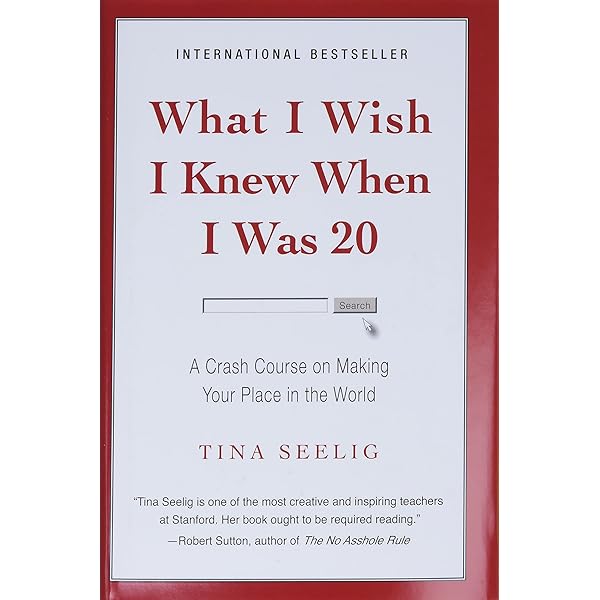Well, isn’t that an existential question right there? The precarious age of twenty. Balanced between the knife-edge of adolescence and adulthood, even though you technically hit that eighteen. The period when everything feels like too much or too little. You can make life-altering decisions yet have the same curfew you had as a teenager if you are unfortunate enough to live at home. And if not, the new responsibilities thrust at you, which you had taken for granted earlier. It is overwhelming.
Some people seem to have it all at twenty, whereas others are still surfing for an Advil and nursing their hangovers, but the common thread is no one has or is all right, and everyone is confused, running on caffeine and bright-eyed wonder.
This wonderful book titled “What I Wish I Knew When I Was 20” captures the essence of being in your twenties while lending the readers the viewpoint of someone who had shuffled through those uncertain waters.
The best thing about this book, besides its tremendous self-help to its readers, is its versatility. Not only is the book meant for adults, as evident by the title, but it is also very well-suited to youngsters who wish to gain knowledge through the trials and errors of those before them.

Title: What I Wish I Knew When I Was 20: A Crash Course On Making Your Place in the World
Author: Tina Seelig
According to Goodreads, my go-to book site, What I Wish I Knew When I Was 20: A Crash Course On Making Your Place in the World is a book that focuses on starting a new career or leaving the haven of school, which happens to be the two major life transitions that can be intimidating. Knowing that no one will tell us whether or not humans are making the right choice while we face a wall of options is frightening. There isn’t a definite route or formula for success. Even just knowing where and how to begin can be difficult. Until now, that is.
As the Stanford Technology Ventures Program’s executive director, Tina Seelig supports her students in navigating the challenging transition from the academic setting to the working world by giving them practical skills and lifelong insights. In What I Wish I Knew When I Was 20, the successful businesswoman, neuroscientist, and well-liked teacher Seelig reveals what she offers her students: fascinating tales, enlightening counsel, and a healthy dose of humility and humor.
These pages are loaded with fascinating stories, from the classroom to the boardroom, of individuals defying expectations, challenging preconceptions, and achieving incredible success. Seelig offers a new framework for realizing our full potential in place of outdated guidelines.
We learn how to recover from failure, achieve a healthy disregard for the impossibility, and how most challenges are great possibilities.
Everyone who wants to leave their imprint on the world should read What I Wish I Knew When I Was 20.
Perhaps the first lesson the readers would learn from Seeling’s book is that they needn’t have large capital to fund an enterprise – only a good idea and one can start working independently. Tina mentions several examples of entrepreneurs and shows us how they made their luck by working hard. She tells us you may create wealth from almost nothing.
One of the most enlightening reviews of this book states,
“Tina Seelig’s inspiring and insightful book resonates with many of my thoughts and worries. Being 20 years old and dealing with uncertainty and a future out of focus, I’m very glad to have received this precious advice early on. As I reached the end of the book, I found myself with even more knowledge about life and myself.
A few memorable things of mine:
- The key to success is not dodging every bullet but recovering quickly.
- You get a wet log if you throw gasoline on a record. But if you throw gasoline on a small flame, you get an inferno.
- Every idea has its value.
- Find the sweet spot that overlaps our passion and skills and how the market values our skills.
- It’s important to reassess your life and career relatively frequently.
- Keep a Failure Resume
- Competition can be counterproductive. There’s a difference between being competitive and being driven to objectives. Focus on maximizing our chances through being well-prepared, physically, intellectually, and emotionally.”
A book meant to resonate with everyone who reads it, What I Wish I Knew When I Was 20, does not have a convenient checklist for its readers to follow or any big secrets that would let them in on the success achieved by people. Rather the book encourages us to look at life from a different angle, which is often left like the road not taken for more conventional ways.
The author pushes us toward being creative; it is not so much a motivational book but a self-actualization book that brings us to question our life choices. Introspect all the right things. A wonderful book that doesn’t disappoint.





![Top 6 ways to solve [pii_email_3dd76af4bcadd8ded428] error 26 Top 6 ways to solve [pii_email_3dd76af4bcadd8ded428] error 26](https://aws.wideinfo.org/edumerson.com/wp-content/uploads/2021/03/07071803/article-14-280x210.jpg)








